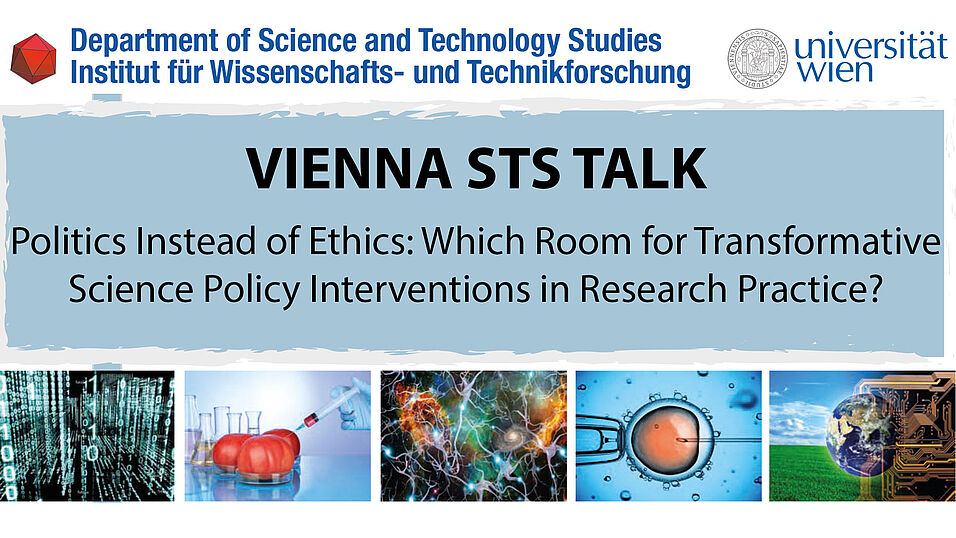Many funding bodies and ministries for research and education in Europe want R&D to address societal challenges. For this, science policies are crafted that shall foster more transdisciplinarity, innovation, responsibility, or digitalization. But how are these envisioned changes enacted in research practices? In this talk, I will explore the question how transformative science policies translate in practice. I draw from experiences from and data generated in collaborative research projects funded within nano- and biotechnology programs in Norway. My point of departure is that any change of practices requires a certain form of disruption or dislocation; that is, recognizing that established ways of doing or embedded practices no longer work. Another premise for the talk is that science policies that demand from scientists to adapt their practices need to be based on knowledge on how scientists respond to present concerns (response-ability) and about their practices of responding (responsiveness). Therefore, the first part of the talk presents findings on how scientists currently tackle societal concerns within their daily work. I will then turn to the question how scientists translate science policies that explicitly address science-society related concerns, such as RRI or innovation. The main argument of the talk is that science-society policies do not sufficiently accommodate competing logics. Furthermore, we need to reflect how useful it is to see through the boundary of different policy fields when transformations are the goal.
Vienna STS Talk
19.02.2019 14:00
Organiser:
Institut für Wissenschafts- und Technikforschung
Location:
Seminarraum STS, NIG, 1010 Wien, Universitätsstraße 7/II/6. Stock

